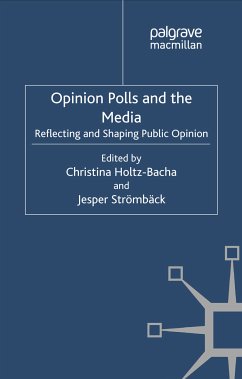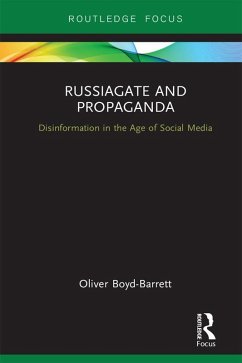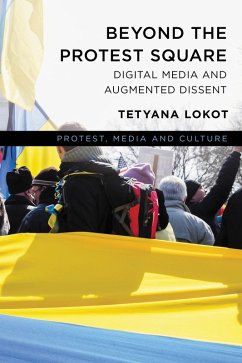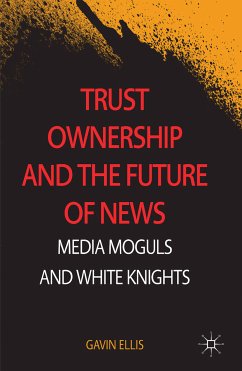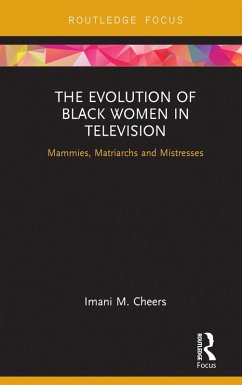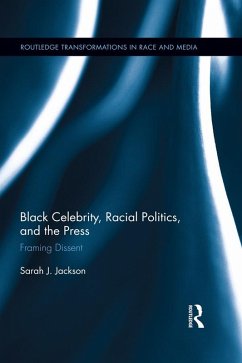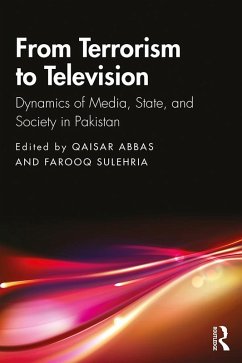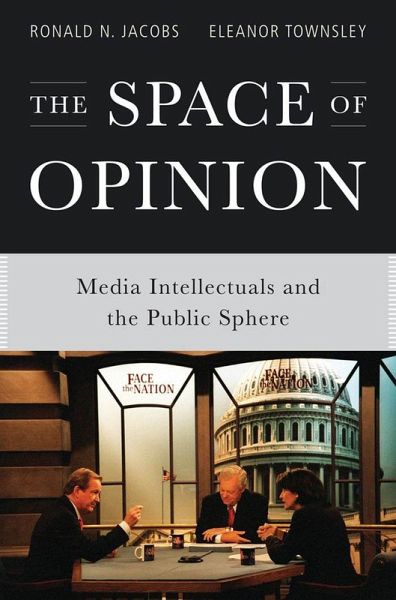
The Space of Opinion (eBook, PDF)
Media Intellectuals and the Public Sphere
Versandkostenfrei!
Sofort per Download lieferbar
11,95 €
inkl. MwSt.
Weitere Ausgaben:

PAYBACK Punkte
6 °P sammeln!
While the newspaper op-ed page, the Sunday morning political talk shows on television, and the evening cable-news television lineup have an obvious and growing influence in American politics and political communication, social scientists and media scholars tend to be broadly critical of the rise of organized punditry during the 20th century without ever providing a close empirical analysis. What is the nature of the contemporary space of opinion? How has it developed historically? What kinds of people speak in this space? What styles of writing and speech do they use? What types of authority a...
While the newspaper op-ed page, the Sunday morning political talk shows on television, and the evening cable-news television lineup have an obvious and growing influence in American politics and political communication, social scientists and media scholars tend to be broadly critical of the rise of organized punditry during the 20th century without ever providing a close empirical analysis. What is the nature of the contemporary space of opinion? How has it developed historically? What kinds of people speak in this space? What styles of writing and speech do they use? What types of authority and expertise do they draw on? And what impact do their commentaries have on public debate? To describe and analyze this complex space of news media, Ronald Jacobs and Eleanor Townsley rely on enormous samples of opinion collected from newspapers and television shows during the first years of the last two Presidential administrations. They also employ biographical data on authors of opinion to connect specific argument styles to specific types of authors, and examine the distribution of authors and argument types across different formats. The result is a close mapping that reveals a massive expansion and differentiation of the opinion space. It tells a complex story of shifting intersections between journalism, politics, the academy, and the new sector of think tanks. It also reveals a proliferation of genres and forms of opinion; not only have the people who speak within the space of opinion become more diverse over time, but the formats of opinion-claims to authority, styles of speech, and modes of addressing publics-have also become more varied. Though Jacobs and Townsley find many changes, they also find continuities. Despite public anxieties, the project of objective journalism is alive and well, thriving in the older, more traditional formats, and if anything, the proliferation of newer formats has resulted in an intensified commitment (by some) to core journalistic values as clear points of difference that offer competing logics of distinction and professional justification. But the current moment does represent a real challenge as more and different shows compete to narrate politics in the most compelling, authoritative, and influential manner. By providing the first systematic study of media opinion and news commentary, The Space of Opinion will fill an important gap on research about media, politics, and the civil society and will attract readers in a number of disciplines, including sociology, communication, media studies, and political science.
Dieser Download kann aus rechtlichen Gründen nur mit Rechnungsadresse in A, B, BG, CY, CZ, D, DK, EW, E, FIN, F, GR, HR, H, IRL, I, LT, L, LR, M, NL, PL, P, R, S, SLO, SK ausgeliefert werden.




